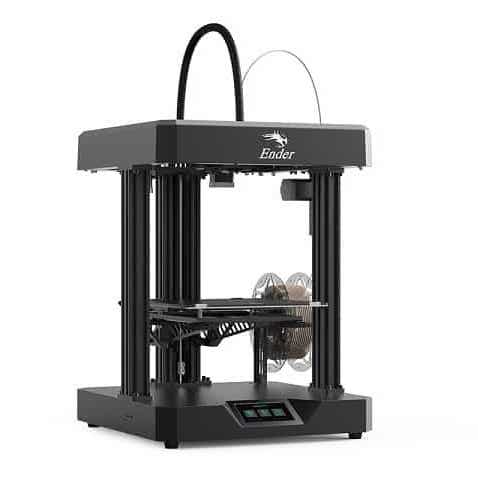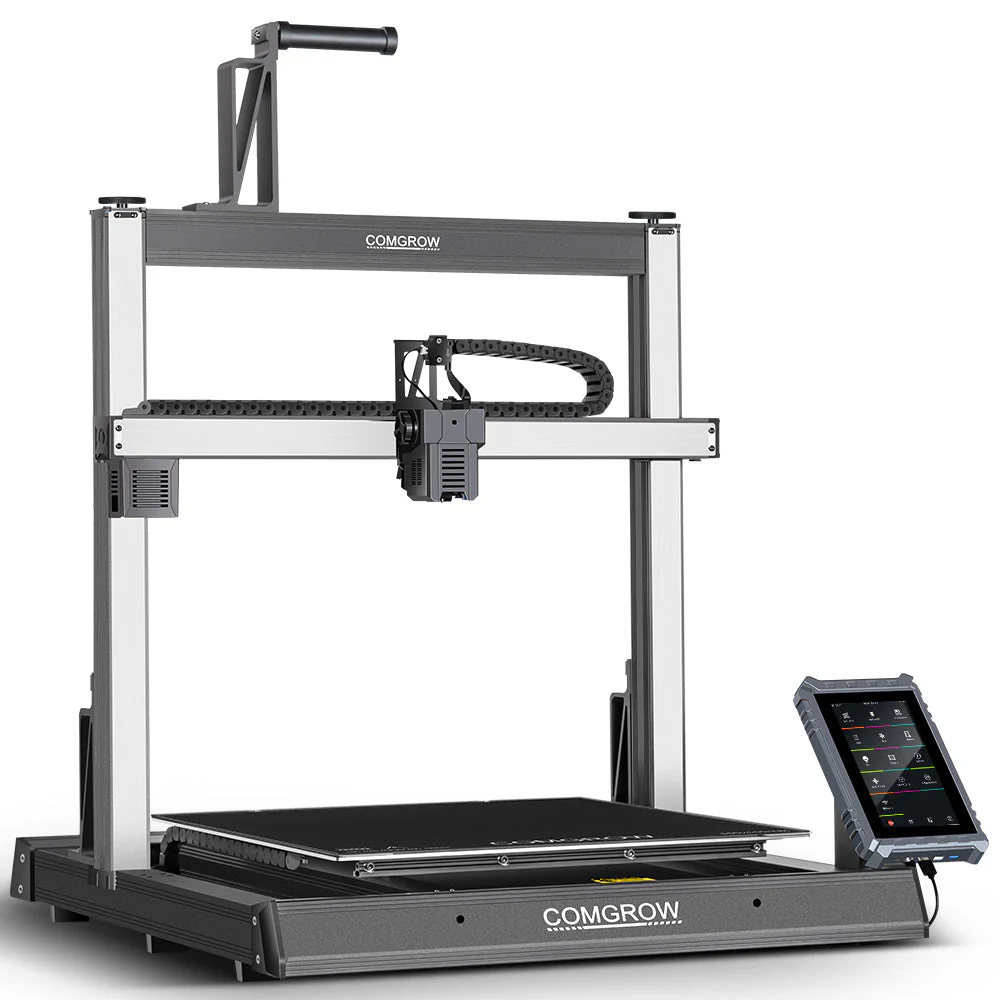Compare Ender 7 vs Comgrow T500
Comparison between the best 3D printers
Choose the best 3D printer at the best price. The cheapest 3D printers are here.
Buy a 3D printer here with 3D Fila.
 |
 |
|
| Model | Ender 7[BUY Ender 7] |
Comgrow T500 |
| Printing Material | Filament | Filament |
| Buy Filament for Creality 3D Ender 7 | Buy Filament forSovol Comgrow T500 | |
| Estimated price | $429,00 | $799,00 |
| Manufacturer | Creality 3D | Sovol |
| Release Year | 2021 | 2024 |
| Print Volume [mm] | 250x250x300 | 500x500x500 |
| Printer Size [mm] | 430x460x570 | 817x810x962 |
| Weight [kg] | 17,2 | 39 |
| Power Loss Recovery | YES | YES |
| Enclosed printer | NO | NO |
| Bed Leveling | Manual | Automatic |
| Filament End Sensor | YES | YES |
| Bed type | Heated | Heated |
| Power supply system | Bowden | Direct Drive |
| Standard nozzle | 0,4 | 0,4 |
| Maximum Nozzle Temperature [°C] | 260 | 300 |
| Maximum Bed Temperature [°C] | 100 | 80 |
| Maximum printing speed [mm/s] | 250 | 500 |
| Filament holder | YES | YES |
| Camera for supervision | NO | NO |
| Recommended filaments | PLA, PETG, Tritan, Flex, ABS | PLA, PETG, Fibra de Carbono, TPU |
| Recommended slicers | Cura, Simplify, Slic3r, IdeaMaker | Creality Print, Cura 5.0 ou superior, Prusa Slicer, Orca |
| Maximum Resolution [mm] | 0,1 | 0,1 |
| Processor | Creality CR-FDM V.2.4.S1_V101 32bits | |
| Display | Display touchscreen 4,3'' | 7'' IPS touchscreen, 60Hz |
| Power Supply | 110/220V / 350W | 500 W |
| Connectivity | SD / USB | |
| Operating systems | Windows, Mac, Linux | |
| Date of registration in the system | 2022-11-04 | 2024-07-18 |
| Release date | 2021 | 2024 |
| Extra features | Crealitys Ender 7 printer offers remarkable print speeds, utilizing CoreXY kinematics for precise and fast movement. With a 250x250x300mm build area, dual direct extruder, and custom hotend, the Ender 7 is capable of printing at high speeds, although quality may suffer on smaller prints. Assembly is relatively straightforward, but the machine is noisy and can get hot. Its true speed potential is most noticeable on larger prints, where it outperforms its competitors. | The Sovol Comgrow T500 stands out for its large print volume of 500x500x500 mm, ideal for large-scale projects. It has a direct extruder with a gear ratio of 6.5:1, speeds of up to 200 mm/s, and high-performance motors. The 7" touchscreen with Klipper software makes navigation easy. The 49-point automatic leveling ensures a perfect first layer. It also has a full metal hotend at 300°C, linear rails on all axes, and WiFi connectivity. |
| Support for multiple colors and materials (AMS and CFS) | NO | NO |
Notes * |
||
| Cost-benefit | 7 / 10 | 7 / 10 |
| Hardware | 2 / 10 | 3.2 / 10 |
| Tela | . | . |
| Print volume | 4 / 10 | 5 / 10 |
| Performance | 2 / 10 | 4 / 10 |
| [BUY Ender 7] |
Conclusion |
| In comparing the Creality Ender 7 and the Sovol Comgrow T500, several key factors highlight the strengths and weaknesses of each 3D printer, particularly when considering user needs, print capabilities, and overall value. The **Ender 7**, released in 2021, offers a competitive price point and features a smaller print volume of 250x250x300 mm. It excels in speed, capable of reaching up to 250 mm/s, making it suitable for users focused on rapid prototyping. However, it requires manual bed leveling, which may be a drawback for those seeking user-friendly operation. This model is particularly favored for its straightforward assembly and reliability for small to medium-sized prints. On the other hand, the **Comgrow T500**, launched in 2024, boasts a substantial print volume of 500x500x500 mm, making it an excellent option for larger projects. It features automatic bed leveling, high-performance components, and a more advanced touchscreen interface, facilitating ease of use. Additionally, with a higher maximum nozzle and bed temperature, it provides flexibility in printing materials, including more specialized filaments. Nonetheless, its higher price reflects its advanced capabilities. In summary, if budget constraints are a primary consideration, the Ender 7 presents a solid choice, particularly for users who prioritize speed and are interested in smaller prints. Conversely, for those willing to invest more for increased versatility, print volume, and advanced features, the Comgrow T500 stands out as a more robust solution. Ultimately, the best choice depends on individual needs, such as project size, material requirements, and ease of use preferences. |

